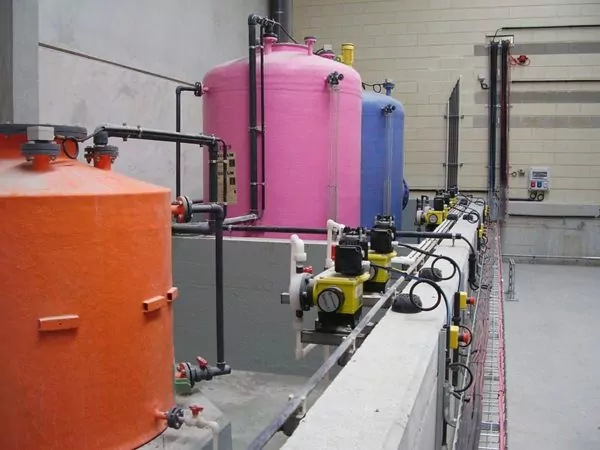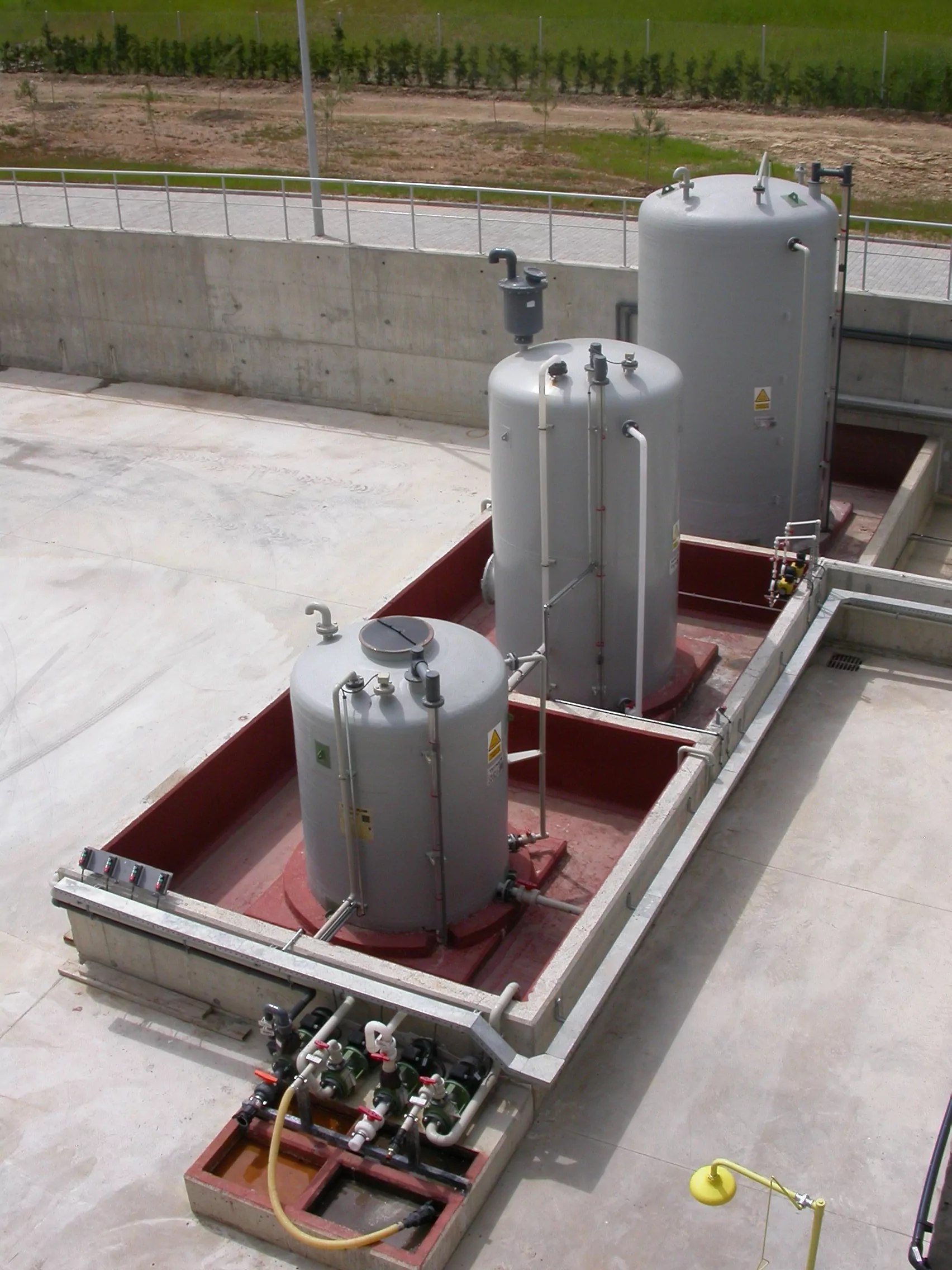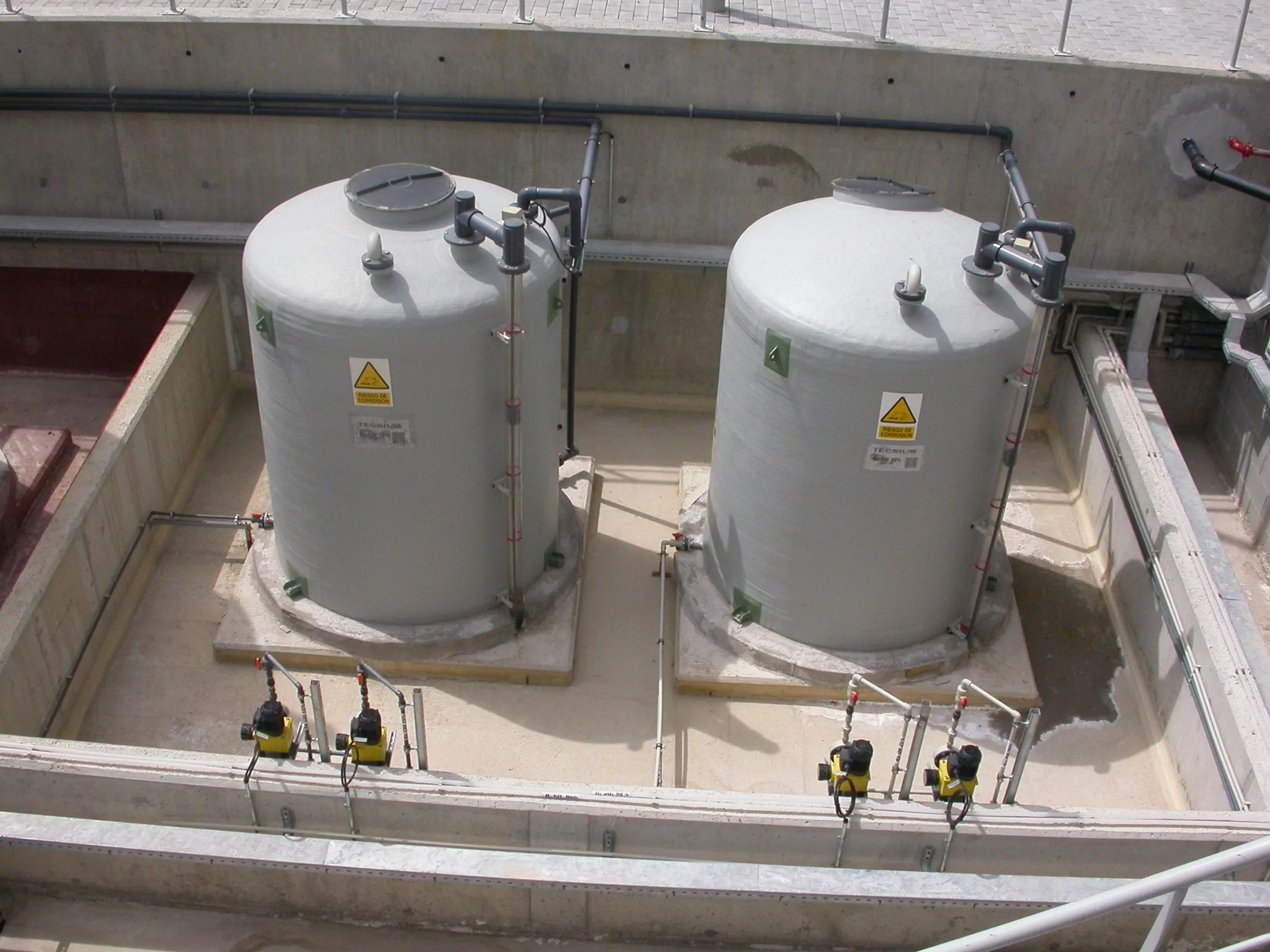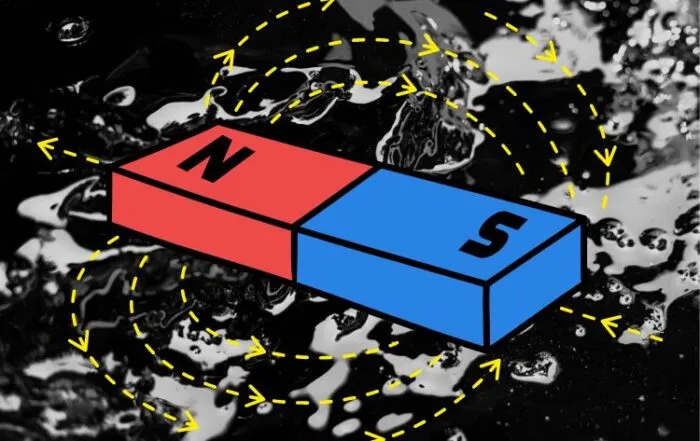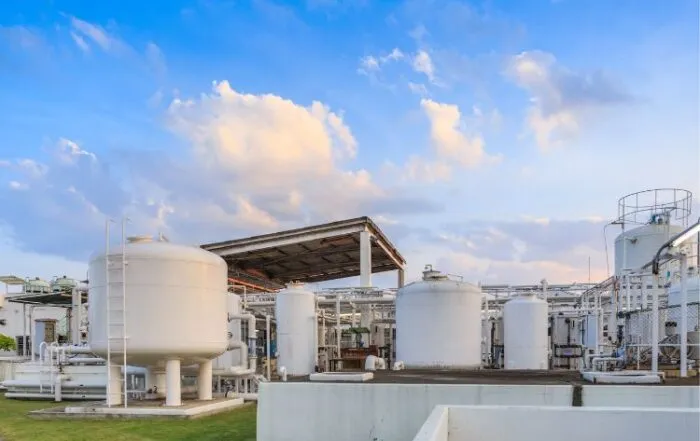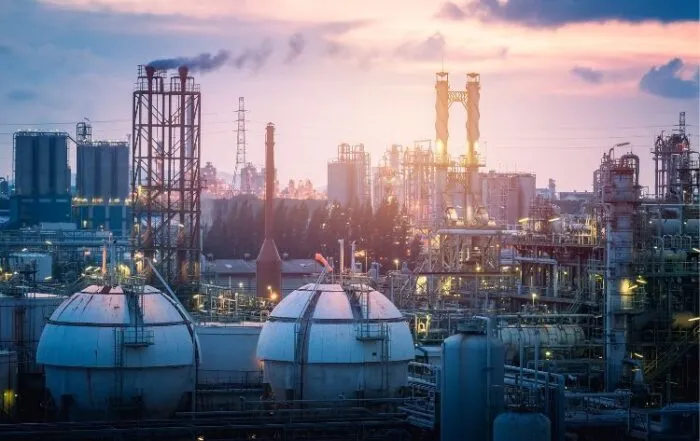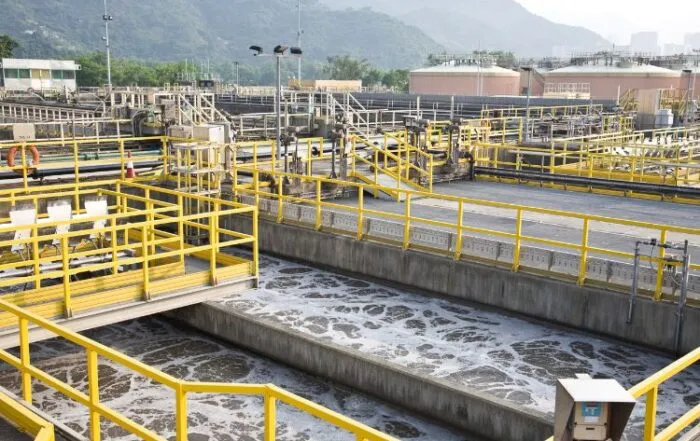Storage Plastic / FRP Tanks for Chemicals
Reagent Storage Tanks Farm.
Water treatment in either potable water treatment plant, municipal wastewater treatment plant or in a desalination plant , aims to treat water so that once processed it is fit for human consumption or is suitable for pouring back to the rivers or to the sea.
There are different types of treatments depending on the origin and use of water, but basically can be summarized as follows:
- Prefilter for removing foreign bodies in the water
- Treatment by flocculation or coagulation, process by which solid particles are separated by the addition of different chemicals
- Decantation, physical process that makes particular settle to the bottom of the equipment designed for this purpose
- Sand filtration beds
- Biological filters
- In the case of potabilization, final disinfection by adding chlorine gas or sodium hypochlorite to achieve potable water
- Reverse osmosis or ultrafiltration in case of desalination
- Treatment of sludge generated in various stages
Performing the above processes involve the use of different chemicals which are added in the process and allows TECNIUM be present as a supplier within this sector.
Description of plastic tanks for reagent storage.
The need to use chemicals for water treatment makes these facilities to have storage tanks to ensure continuous operation. These products are often corrosive from industrial manufacturing process to its addition to the water process. For this reason these storage tanks must meet certain technical requirements for chemical resistance.
TECNIUM specializes in the manufacture of such plastic tanks, using various materials such as FRP (fiberglass reinforced polyester), PP, HDPE, PVC, …
This set of tanks is referred Reagent Storage Tanks Farm and is vital the selection of materials and the calculation of the thickness needed to ensure its mechanical and chemical resistance, as well as compliance with the specific standards for chemical storage.
TECNIUM is able to manufacture these equipments under such standards. TECNIUM can supply single-walled plastic tanks to install into retention ponds , or double-wall tanks as stipulated by the regulations so that , in case of breakage of the tank, the second wall prevents liquid leakage .
More information
Give us your contact details and we will advise you on the best solution for your application.
View also
How Gas Scrubbing Technologies Will Drive Decarbonisation in the Chemical Sector
Decarbonisation as the Urgent Challenge for the Chemical Industry The chemical industry is entering one of the most transformative decades in its history. As regulatory pressure intensifies and global climate targets advance, [...]
Tecnium to attend PCH Meetings 2025 in Lyon
Leading Innovation in Chemical Process Equipment Tecnium will participate in the 21st edition of PCH Meetings, the leading international business convention for process, chemical, petrochemical, and pharmaceutical industries, to be held on [...]
Magnetic Drive Pumps: The Science Behind Leak-Free Chemical Transfer
Why Magnetic Drive Technology Matters In industrial environments where safety, reliability, and chemical containment are critical, even a small leak can have major consequences. Traditional centrifugal pumps, which rely on mechanical seals [...]
Biofiltration for Air Pollution Control
Introduction to Biofiltration and Air Pollution Control Air pollution control is a persistent challenge across multiple industries — from wastewater treatment to chemical manufacturing, food processing, and beyond. As regulations grow stricter [...]
ECHA 2025 Report
Why the ECHA 2025 Report Matters The European Chemicals Agency (ECHA) plays a central role in regulating the safe use of chemicals across the European Union. Through its guidance, risk assessments, and [...]
A Key Element for Environmental Protection in WWTPs
Why Gas and Odour Emissions in WWTPs Are an Environmental Issue Wastewater treatment plants (WWTPs) play a critical role in safeguarding public health and the environment. However, the treatment process itself can [...]

